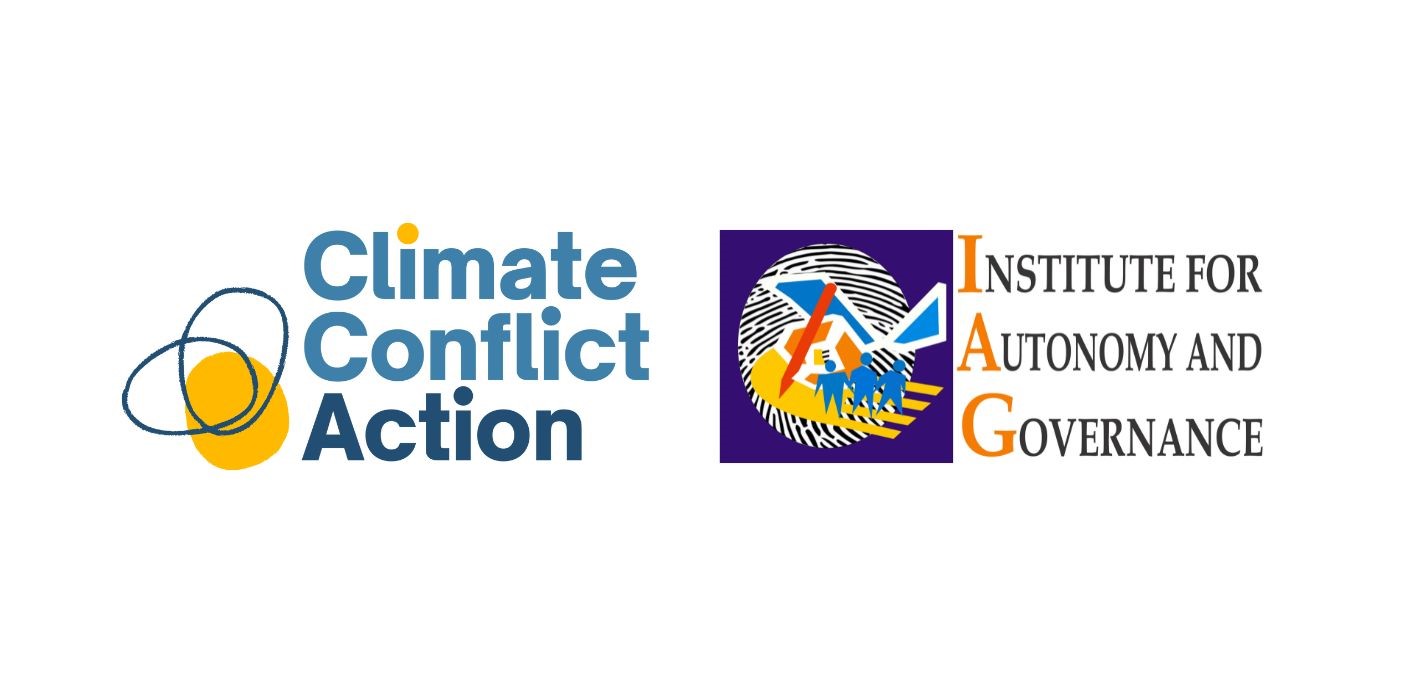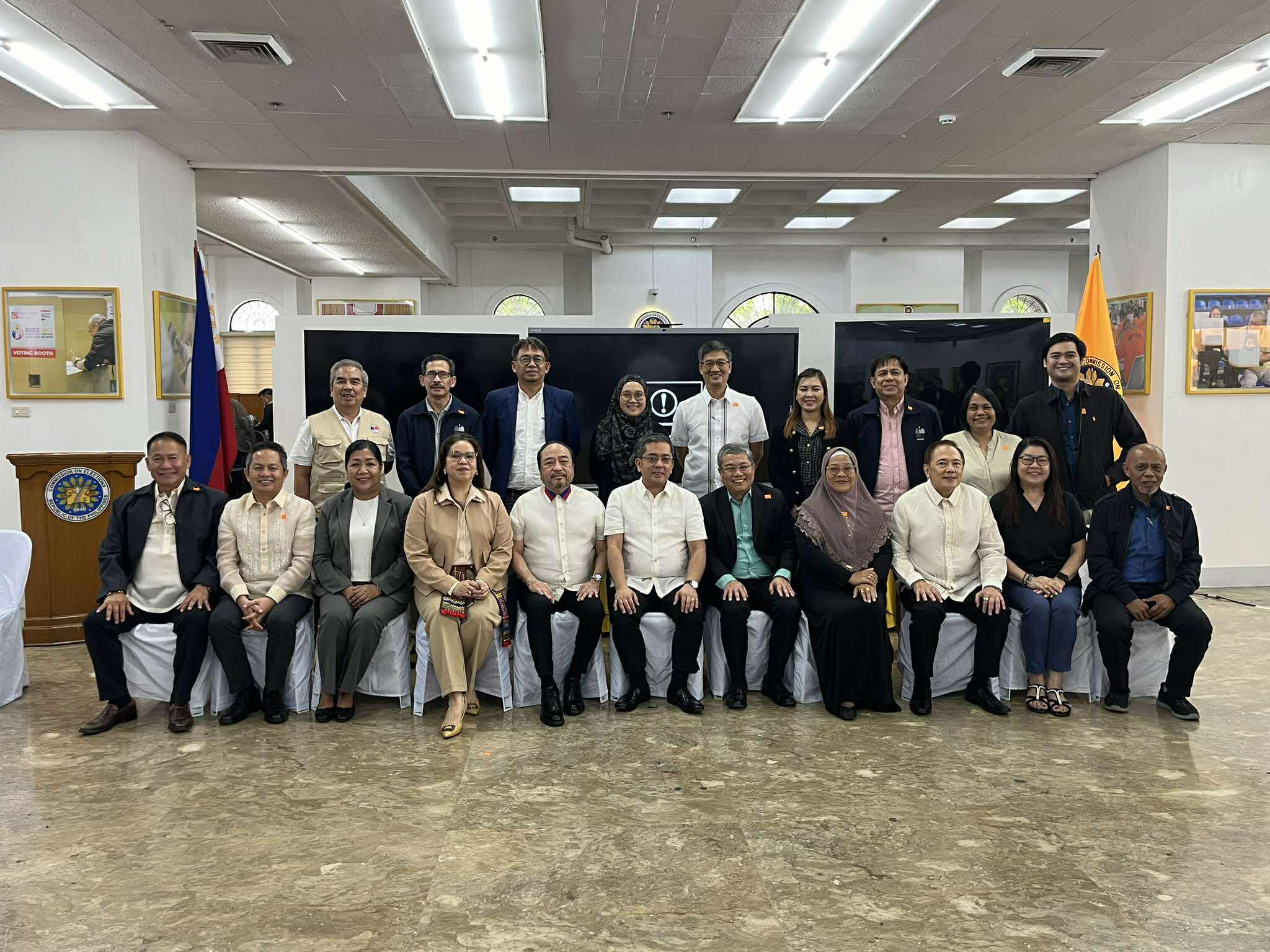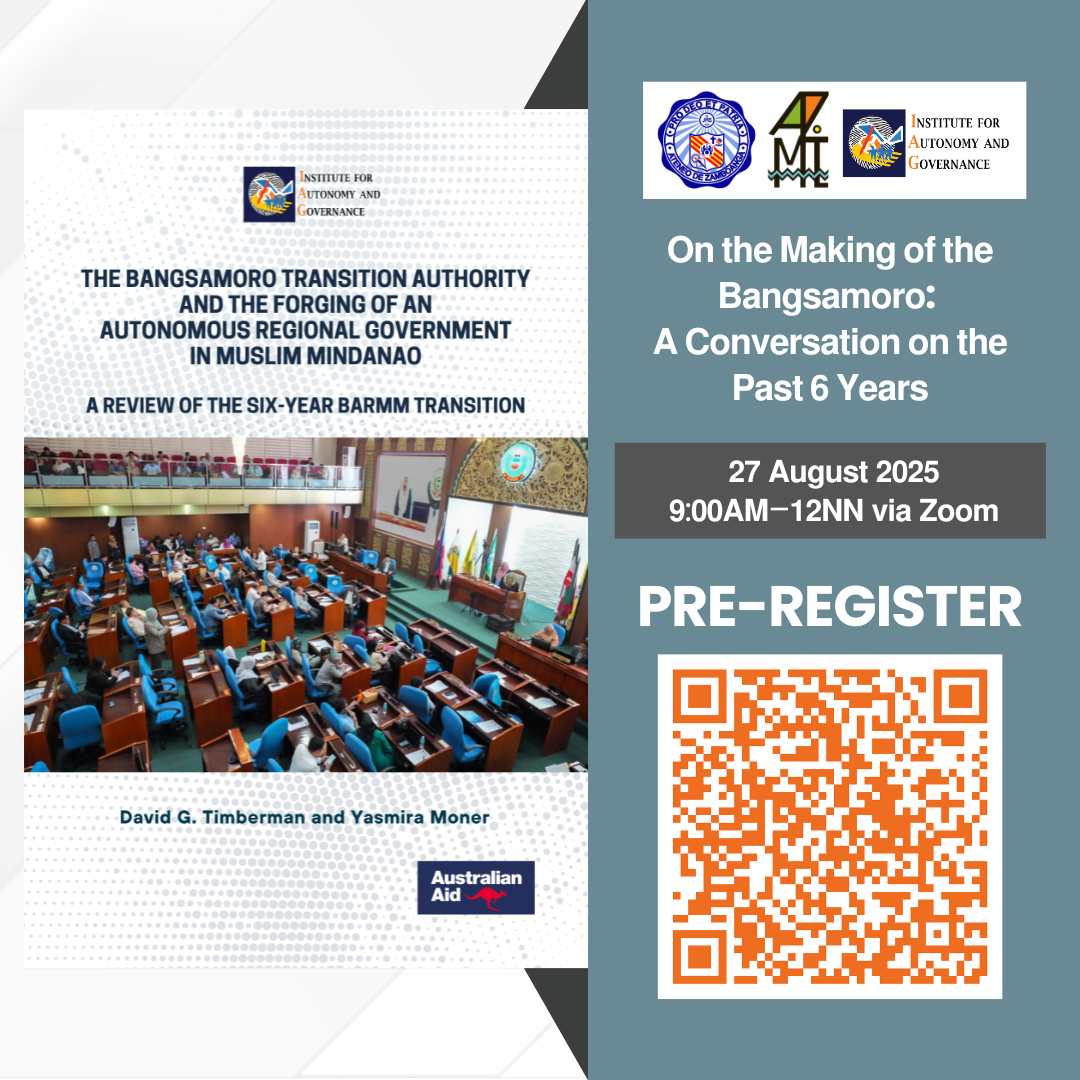While headway was gained in the political track of the peace process where BARMM’s political institutions, laws and bureaucracy were put in place under the MILF-led Bangsamoro Transition Authority (BTA), the decommissioning of the MILF combatants has been painstakingly slow, tentative, and fraught with red flags, including the repeated and unilateral suspension of planned decommissioning processes and targets.
Read more: Joint Statement by IAG and CCAA on the Status of MILF Decommissioning
The Independent Election Monitoring Center (IEMC), a recognized monitoring group of the Commission on Elections (COMELEC) for the Bangsamoro Autonomous Region in Muslim Mindanao (BARMM), met with COMELEC Chairman George Garcia and five commissioners today to dialogue on several critical issues ahead of the October 13, 2025 parliamentary elections.
Read more: IEMC Urges Holding of Scheduled BARMM Polls for 73 Seats
Read more: Kusog Mindanaw 2025 Launches in Davao City, Marks Transition to Youth-Led Leadership
IAG will present its newly released independent assessment of governance in the BARMM at an upcoming Ateneo Zamboanga-Mindanao Institute (AZMI) public forum titled “On the Making of the Bangsamoro: A Conversation on the Past 6 Years.” Scheduled for August 27, 2025, from 9:00 AM to 12:00 NN via Zoom, the forum will unpack the findings of IAG’s independent report on the Moro Islamic Liberation Front (MILF)-led transition and its implications for the future of autonomous governance in the region.
Read more: IAG to Present Independent Report on Bangsamoro’s Six-Year Transition at AZMI Forum
Sultan Kudarat Governor Datu Pax Ali Mangudadatu opened the Kusog Mindanaw 2025 Conference by urging participants to be “critical catalysts of change.” He reminded the audience that “politics is temporary—it comes and goes,” but leadership built on puso, utak, at kamay—heart, mind, and capacity—leaves a lasting legacy. His keynote marked a shift in Kusog Mindanaw’s history, as younger leaders stepped into more visible roles in a platform that has convened Mindanao’s thinkers and movers since 1994.






